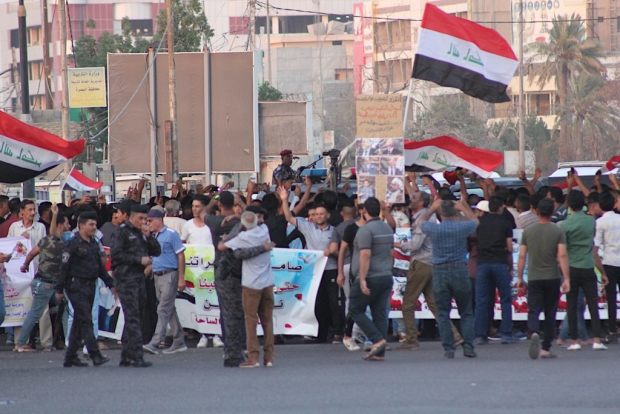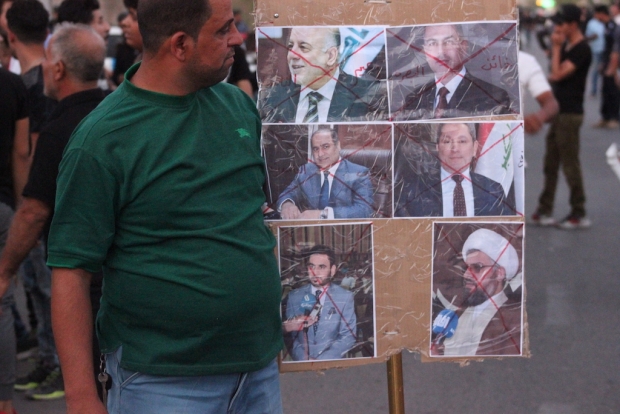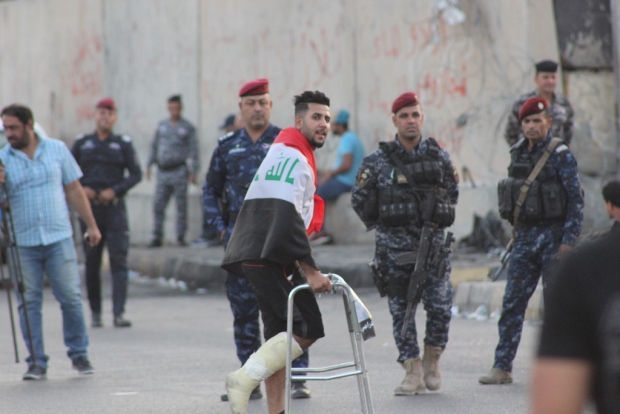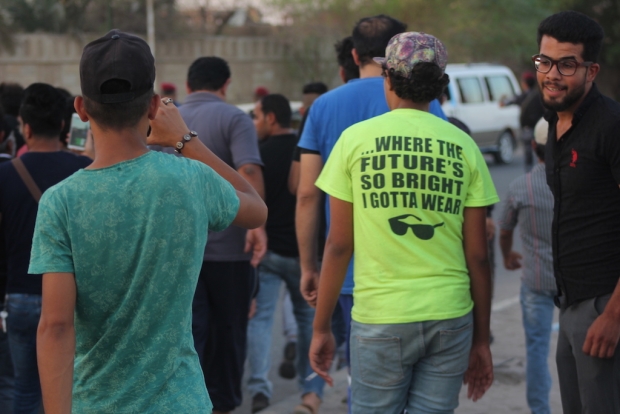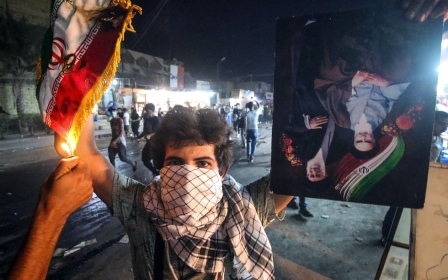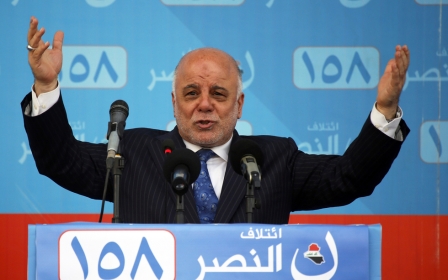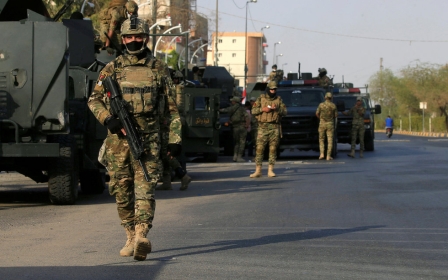'There is extermination here': Basra protests against killing of demonstrators
BASRA, Iraq - Tears streamed down Haider's face as he described how his brother Mohammed was killed by armed police during a demonstration in Basra on 4 September. He was one of dozens of people killed since protests against corruption, unemployment, water and electricity shortages began in July.
"He was shot in his abdomen - that is why I am demonstrating now," he said. "Demonstration was my brother's way and we will keep it his way."
Haider was one of those heading up the "March of Murdered People" on Friday, with hundreds protesting against the increasingly long list of people killed for taking to the streets to demand public services and stable futures.
The anger shown by Basrawis has shaken Iraq to its core, shattering a common perception both nationally and abroad that the country would be on its way to recovery after defeating the Islamic State (IS) group in Mosul in July 2017.
Instead, the crisis in Basra has seen dozens killed, hundreds wounded, the headquarters of political parties and the Iranian consulate torched, and the career of Prime Minister Haider al-Abadi - thought to have been riding high on the IS defeat - effectively ended.
We came here and we are not sure if we are going back to our homes alive or in a coffin
- Nasser, protester
"The Iraqi media is lying - we are not criminals, we don't burn," said one protester, Nasser. "We are coming here against corruption, we want to correct things, not make things wrong."
"For 15 years we don't have one water purification station. This is a disaster. They are humiliating the people. There is extermination here - they are killing a lot of us.
"We came here and we are not sure if we are going back to our homes alive or in a coffin," he said.
On Friday evening, the outgoing Abadi announced that he would be launching an investigation into the numerous deaths and kidnappings in Basra (as well as Baghdad), demanding results within 48 hours.
But there was very little love for the political class on display at Friday’s demonstration, which had a less prominent police presence than previously - possibly sensitive to any escalation.
An even more telling sign was the charred remains of one of the Basra governorate buildings, torched in early September.
Activists carried the Iraqi national flag as well as flags depicting Imam Hussein, the grandson of the Prophet Muhammed, who is revered by Iraqi Shia for his martyrdom at the Battle of Kerbala in which he died while facing overwhelming odds against the Umayyad caliphate.
Gathering on the road leading up to the Basra governor's office, the young black-shirted men leading the chanting gathered in a circle, slapping their chests and singing.
"The Imam Hussein revolution was a revolution, and this is also a revolution!" they sang.
One protester with a broken foot limped slowly along as well, still determined to take part despite his injury.
"We are here to honour my friends and what they gave to this country. We are asking for a proper life - for everything, water and electricity."
'We will get killed secretly'
One of the protest organisers, Naqib Alluaibi - also a nephew of Iraq's oil minister - said threats against those involved in the demonstrations had been increasing in recent weeks, as powerful figures accused them of being backed by shady foreign forces, such as the United States or Israel.
"Israel... Qatar... France... Australia..." he joked, dismissing the suggestion.
But the threats are no longer taken lightly, particularly after the public murder of women's rights activist Suad al-Ali on Tuesday. Although police have suggested she was murdered by her ex-husband, Alluaibi and other activists believe it was an assassination.
"They will not shoot us directly or intentionally, but it will be more like Suad al-Ali - they will say it is a social issue," he said.
"I think we will get killed secretly, just like Suad."
His anger at the damage done by the failed water infrastructure was palpable - like other protesters Middle East Eye spoke to, he said the official statistics given by the Basra health ministry of the number infected by waterborne diseases was underestimating the problem.
The most recent figure, cited by Iraq's Independent High Commissioner for Human Rights, suggested that 95,000 people had been admitted to hospital because of polluted drinking water - however, Alluaibi said this did not take into account large numbers who did not go to hospital when they were infected.
He also dismissed the still ongoing government formation process, saying the new coalition was riddled with "sectarians" and "terrorists".
"This is a bastard government", he said. "Why should I support any of them? They all destroyed the country.
"What have we reached now, in Basra, is because of these parties."
On Saturday, the US announced the evacuation of its diplomats from Basra after mortar fire targeted the consulate near Basra international airport.
Although no damage was done by the mortars, the ability of armed groups to target diplomatic buildings and civilians in Basra has worried residents.
The situation remains febrile in the city, with some analysts going as far as warning of a potential Libya-style situation if the problems afflicting Basra are not resolved, and trust in the central government is not repaired.
Middle East Eye propose une couverture et une analyse indépendantes et incomparables du Moyen-Orient, de l’Afrique du Nord et d’autres régions du monde. Pour en savoir plus sur la reprise de ce contenu et les frais qui s’appliquent, veuillez remplir ce formulaire [en anglais]. Pour en savoir plus sur MEE, cliquez ici [en anglais].


